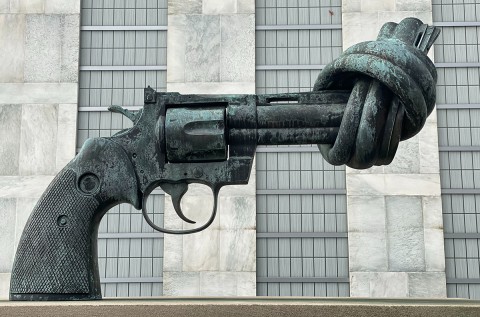It’s time to end our national love affair with guns
Breaking America’s fetish for lethal weapons

I first learned the word enthralled while studying Shakespeare in high school English. It wasn’t a word I immediately began using. But when a teenage couple in the hallway would squeeze in some sensuous kissing time before the bell rang, I knew what it meant. Mr. Taylor would step out of our math class to tell the couple to “quit exchanging spit, and get to class.” Then he’d physically yank them apart. The couple was enthralled with being in love—so absorbed in, mesmerized by, and infatuated with one another that each seemed to have a sort of mystical hold on the other. Such is the enchantment of being enthralled.
Only once have I seen or heard the word disenthralled in use. It’s in Abraham Lincoln’s annual message to Congress from December 1, 1862. Delivered exactly one month before the Emancipation Proclamation took effect, the speech closes with several paragraphs designed to push Americans to rethink their views on slavery. Lincoln offered a glimpse of what was in his own heart:
We can succeed only by concert. It is not, “Can any of us imagine better?” but, “Can we all do better?” . . . The dogmas of the quiet past are inadequate to the stormy present. The occasion is piled high with difficulty, and we must rise with the occasion. As our case is new, so we must think anew and act anew. We must disenthrall ourselves, and then we shall save our country. . . . We know how to save the Union. . . . We, even we here, hold the power and bear the responsibility.




